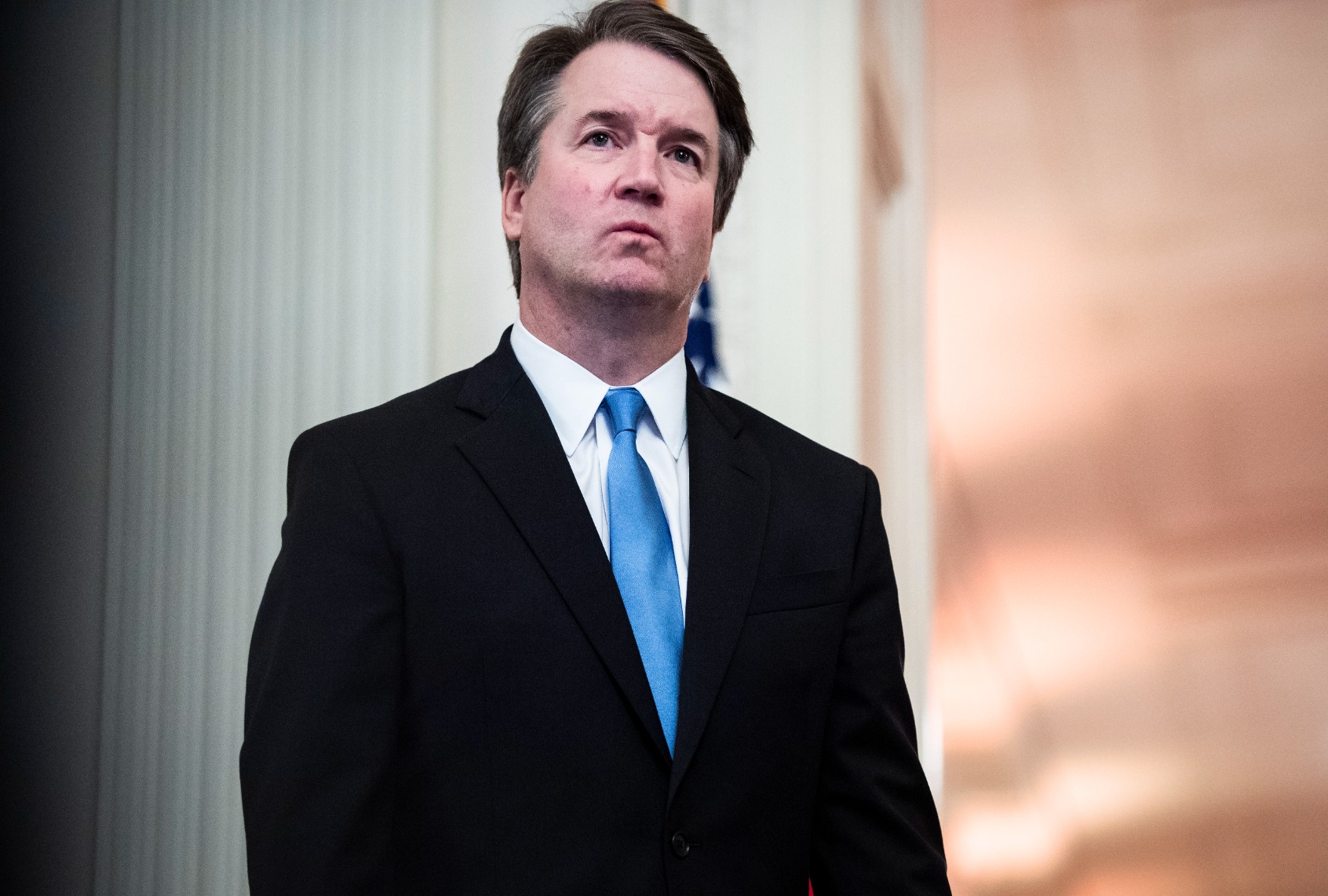Legal scholars raised concerns about the judicial code of ethics after a report from Politico that revealed Supreme Court Justice Brett Kavanaugh recently attended a private holiday party hosted by Conservative Political Action Coalition (CPAC) chairman Matt Schlapp.
Also in attendance at the party on Friday night was Stephen Miller, a top adviser to former president Donald Trump and head of the America First Legal Foundation, which has cases pending in court.
Brett Kavanaugh was seen hanging out at a Republican party with Matt Gaetz, Sebastian Gorka, Sean Spicer, and Erik Prince, per @politico. pic.twitter.com/nNjcIy2HSt
— No Lie with Brian Tyler Cohen (@NoLieWithBTC) December 10, 2022
Kavanaugh’s social appearances have raised questions about the code of ethics on the Supreme Court and have legal experts wondering: at what point does a justice’s personal relationships cross a professional line?
“Supreme Court justices should be extraordinarily careful in not only having no actual ethical difficulties but having no appearance of an ethical conundrum as well,” Emory University law professor Tonja Jacobi told Bloomberg Law.
Jacobi added that the “legitimacy of the court at the moment is taking a severe beating,” which is in line with data that shows people are losing faith in the judicial branch.
Americans’ trust in the Supreme Court decreased by 20 percentage points in the past two years, according to a September poll from Gallup. Only 47 percent of US adults have a great deal or fair amount of trust in the judiciary, the poll found.
Charles Geyh, a professor at the Indiana University Maurer School of Law, told Bloomberg that Kavanaugh’s attendance at a party with guests who “live, eat, and breathe conservative political action” is reflective of his insensitivity to Americans’ lack of trust, or his indifference to it.
“This is the worst possible time for this,” Geyh explained. Supreme Court justices are not bound by the code of ethics for federal judges, but they do closely follow it, and the code dictates that judges should avoid impropriety, or even the appearance of it, in all circumstances. Geyh says that in the midst of the Supreme Court’s loss of public support and risk of de-legitimacy, Kavanaugh’s appearance was “at a minimum a poor idea and potentially a violation of judicial ethics.”
Want a daily wrap-up of all the news and commentary Salon has to offer? Subscribe to our morning newsletter, Crash Course.
The report came just a week after the House Judiciary Committee questioned Evangelical activist Rev. Robert Schenck who alleged that Justice Samuel Alito leaked the outcome of the Supreme Court’s 2014 decision in Burwell v. Hobby Lobby Stores during a private dinner at the justice’s home. The decision allowed private companies to claim religious exemptions from a mandate in the Affordable Care Act that says corporations must cover birth control.
Schenck’s claims, first reported in the New York Times, included stories that he recruited “stealth missionaries” for a project called Operation High Court which worked to strengthen the justices’ conservative views on issues such as abortion and same-sex marriage. He added that the vague ethics rules made it easy for him to form relationships with the justices, and that he achieved a rare level of access and intimacy with them.
“In one instance, Justice [Clarence] Thomas commended me, saying something like, ‘Keep up what you’re doing; it’s making a difference,'” Schenck told the House Judiciary Committee.
Former anti-abortion lobbyist Rev. Robert Schenck on “Operation Higher Court”: “In one instance, Justice Thomas commended me, saying something like, ‘keep up what you’re doing, it’s making a difference.'” pic.twitter.com/dbX9HdLHrm
— CSPAN (@cspan) December 8, 2022
In a Nov. 28 letter, Supreme Court Legal Counsel Ethan Torrey told Sen. Sheldon Whitehouse, D-R.I., and Rep. Henry Johnson, D-Ga. that there was no evidence suggesting Alito violated ethics standards.
“Relevant rules balance preventing gifts that might undermine public confidence in the judiciary and allowing judges to maintain normal personal friendships,” Torrey told the lawmakers.
However, due to news of the leak and Kavanaugh’s recent party appearance, Democrats are investigating the links between conservative groups and the Supreme Court, and are trying to create an ethics code for the justices.
Rep. Jerry Nadler, D-N.Y., addressed Schenck’s allegations in front of the House Judiciary Committee last Thursday and called for ethics reform.
“While this breach of trust was undoubtedly a serious incident, made even more troubling in light of the leak of the Dobbs opinion earlier this year, it should not be the key takeaway from Rev. Schenck’s story,” Nadler said. “The moral of the story is this — Supreme Court justices can’t effectively self-police their own ethics. We shouldn’t expect them to.”
Reform advocates propose that justices must follow disclosure rules for gifts and that they should recuse themselves from cases that could impact their family or associates.
Legislative proposals from Democrats for a code of ethics in the Supreme Court have been unsuccessful thus far, and will likely be harder to pass with a newly divided Congress.
Read more
about the Supreme Court


